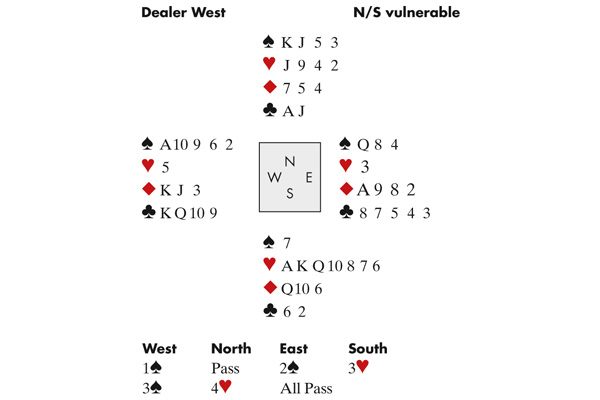A friend asked me recently whether there are any rules against ‘unethical hesitations’ in bridge: one of his opponents had paused before following low in a suit; as a result, my friend had assumed he held the ace, and put up dummy’s king …whereupon the other opponent won the trick.
It’s a murky area: a pronounced hesitation, for no good reason, is clearly unethical. But many hesitations are ambiguous, or hard to prove. In my view, if you accidentally fumble for even a moment, you should declare that you have ‘nothing to think about’.
One of my favourite stories about unethical behaviour concerns the late American player Alvin Roth (who invented weak twos and the unusual no trump). ‘Al’ couldn’t abide any form of cheating. Once, during a game of high-stake rubber bridge, he found himself defending 7NT. The contract depended on a two-way finesse: when declarer led the jack in the suit, Al’s partner paused, as though wondering whether to cover, before playing low. Declarer let the jack ride, and Roth, who really did hold the queen, also played low! The contract made. ‘Why on earth didn’t you take your queen?’ spluttered Al’s partner. ‘I thought you had it,’ Al replied.
As it happens, a few hands later, Al played a queen in a situation where many other players wouldn’t even think of it — but this time he did it to help, not punish, his partner:
West led the ♠A. It’s not easy to find the diamond shift: West is more likely to switch to club. If that happens, declarer can pitch a club on the ♠K and ruff a spade to establish dummy’s ♠J for a diamond discard. Al, sitting East, had a simple solution: he dropped his ♠Q on partner’s ♠A: a clear suit preference signal.







Comments
Join the debate for just £1 a month
Be part of the conversation with other Spectator readers by getting your first three months for £3.
UNLOCK ACCESS Just £1 a monthAlready a subscriber? Log in